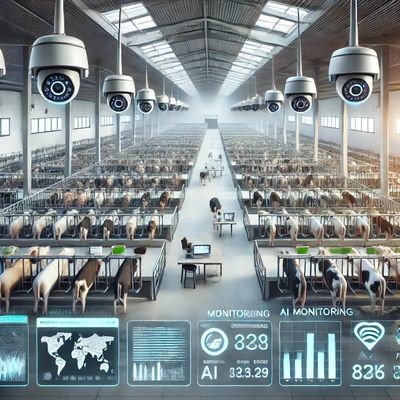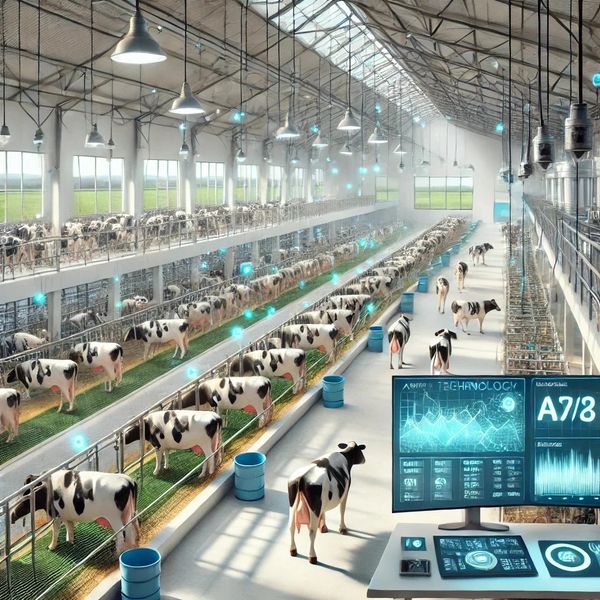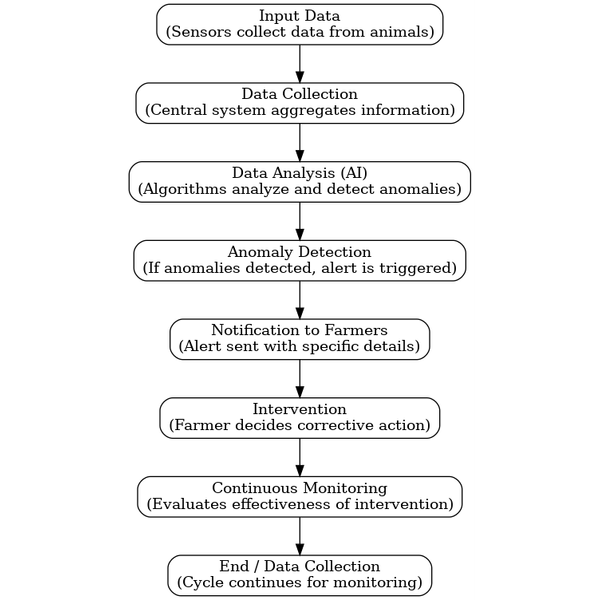

- Home
- Companies
- Franco S.r.l.
- Articles
- The Impact of Artificial Intelligence ...

The Impact of Artificial Intelligence on Intensive Farming
This technological revolution promises to improve efficiency, sustainability, and animal welfare, but it also raises ethical and environmental questions. In this article, we will explore the impact of AI on intensive farming, examining the benefits, challenges, and potential future implications.
One of the main advantages of AI in intensive farming is the increase in operational efficiency. AI-based monitoring systems can collect and analyze vast amounts of data in real time, enabling farmers to optimize resource management.
For example, in a large-scale cattle farm, AI can monitor parameters such as heart rate, body temperature, and movement patterns, quickly identifying anomalies that may indicate health issues. This type of personalized monitoring allows care to be tailored to the specific needs of each animal, rather than applying generic solutions to the entire group.
AI can also regulate population density within the facilities, reducing overcrowding and minimizing aggressive behaviors often caused by stress. The ability to maintain stable environmental conditions is especially crucial during the hotter or colder months, when extreme temperature fluctuations can significantly affect animal welfare.
One of the main advantages of AI in the context of biosecurity is its ability to constantly monitor animal health and detect early signs of disease. Through the use of sensors, cameras, and machine learning algorithms, AI can analyze data in real-time, identifying changes in behavior, body temperature, or activity levels that may indicate an ongoing infection.
For example, AI could be highly beneficial in cases of bluetongue (catarrhal fever in small ruminants). With the tools available, AI would provide significant assistance in containing the disease and monitoring infected animals.
AI can be used to automate and optimize these processes, reducing the risk of cross-contamination. AI-based access control systems can monitor and limit the movement of animals within facilities, preventing contact between different groups that could transmit diseases.


Another key aspect of biosecurity is animal traceability and the management of health-related data. AI can facilitate the collection and analysis of detailed data on each animal, creating individual profiles that include information on health, behavior, social interactions, and environmental conditions. This data can be used to trace the origin and spread of diseases, aiding epidemiological investigations and improving the ability to respond to disease outbreaks. While AI offers significant advantages for biosecurity in intensive farming, its implementation also presents challenges. Integrating AI-based systems requires considerable initial investment and proper staff training. Additionally, it is essential to ensure that the collected data is managed securely and with respect for privacy, both for the animals and the people involved.
AI has the potential to revolutionize intensive farming, but its implementation must be guided by ethical principles and a long-term vision that considers the complex interactions between technology, society, and the environment.
Artificial intelligence offers an unprecedented opportunity to improve animal welfare in intensive farming, helping to create more humane and sustainable living conditions for animals.
While the implementation of AI requires careful planning and investment, the long-term benefits for biosecurity are undeniable. With AI, intensive farms can become more resilient to health threats, ensuring a safer and more sustainable future for agriculture and society as a whole.
